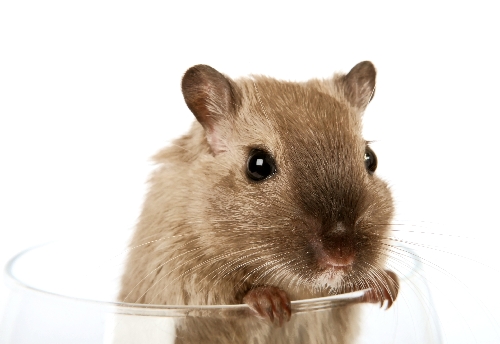Rodents make great pets for many families because of their small size, relatively low maintenance, and fun personalities. Whether you’re considering a hamster, guinea pig, rat, or mouse, these creatures can be delightful companions. However, choosing the right pet rodent for your family requires some thought and planning. It’s essential to consider factors like space, care requirements, temperament, and the ages of the children in your household. In this article, we’ll discuss how to choose the perfect pet rodent and provide tips for ensuring a happy and healthy life for both your new pet and your family.

Why Choose a Pet Rodent?
Before diving into how to choose the right pet rodent, let’s first discuss why rodents are such popular pets:
- Small Size: Rodents are compact, which makes them suitable for families with limited space, such as apartments or smaller homes. They don’t require large enclosures or roaming areas like dogs or cats, making them easy to accommodate.
- Low Maintenance: Compared to larger pets, rodents require relatively little care. They don’t need frequent walks, grooming, or vaccinations (although they do need regular cage cleaning, food, and water). This makes them ideal for families with busy schedules.
- Affectionate Companions: Many rodent species, such as guinea pigs and rats, can form strong bonds with their owners. These pets are social and enjoy interacting with their human family members, offering companionship and affection.
- Educational: Having a pet rodent can teach children about responsibility, empathy, and the importance of caring for animals. Kids can help with feeding, cleaning, and even training, which promotes a sense of responsibility and commitment.
Factors to Consider When Choosing a Pet Rodent
To choose the right rodent for your family, several factors should be considered. These include the age of your children, the amount of time you can dedicate to your pet, the size of your living space, and the rodent’s social needs. Let’s break these factors down to help you make the best decision.
1. Space Requirements
One of the primary factors in choosing a pet rodent is the size of your living space. While most rodents are small, they still need an appropriate enclosure to feel comfortable.
- Hamsters: Hamsters are great for families with limited space. A small hamster cage with ample room for exercise wheels, tunnels, and bedding will suffice. Make sure the cage is secure to prevent your hamster from escaping.
- Guinea Pigs: Guinea pigs require more space than hamsters. Ideally, their cage should be at least 7.5 square feet for one guinea pig, and even larger for more than one. Guinea pigs also need room to run, so a larger space allows them to be more active and healthy.
- Rats and Mice: Rats need a larger cage with multiple levels to climb and explore. A vertical cage is ideal for them, providing enough space for play and rest. Mice, on the other hand, don’t require as much space, but they are social animals and should ideally be housed in pairs.
2. Time Commitment
Different types of rodents have varying levels of time commitment for care and attention.
- Hamsters: Hamsters are generally low-maintenance and are nocturnal, which means they are most active during the night. They don’t need constant attention, making them a good option for families with busy schedules. However, they will still need to be fed, watered, and have their cages cleaned regularly.
- Guinea Pigs: Guinea pigs are more time-consuming than hamsters. They need daily attention and regular interaction with their owners. Guinea pigs are social creatures and thrive on companionship, so it’s recommended to get more than one guinea pig if possible.
- Rats and Mice: Rats are highly intelligent and social. They require interaction with their owners, as they are very affectionate and love to bond. Mice are less social than rats, but they still benefit from daily interaction. Both rats and mice need a clean cage and fresh food, and they thrive in an environment that stimulates their curiosity.
3. Age of Children
The age of the children in your household plays a significant role in choosing the right pet rodent. Some rodents are more suitable for younger children, while others may be better suited for older children or adults.
- Hamsters: Hamsters can be a good choice for families with older children. They are relatively independent and don’t require as much attention. However, younger children might not have the patience to care for them or may become frustrated if the hamster is shy or nocturnal. Additionally, hamsters are small and fragile, which means they may not be ideal for very young children who might handle them too roughly.
- Guinea Pigs: Guinea pigs are gentle and social, making them a great choice for families with younger children. They enjoy interaction and are generally more tolerant of handling. However, guinea pigs do need to be handled with care, as they can get stressed easily. Teaching children to be gentle with the guinea pig is essential.
- Rats and Mice: Rats are incredibly friendly and love being handled, making them suitable for older children who are able to interact with them properly. Mice, while still friendly, are smaller and may not enjoy as much handling. They are best suited for older children who can be gentle and mindful of their small size.
4. Temperament and Personality
Each rodent species has a unique personality and temperament. Some are more independent, while others are very social. Consider how much interaction you want from your pet and how much attention they will need.
- Hamsters: Hamsters are more solitary animals. They are often shy and may not enjoy being handled as much as guinea pigs or rats. However, they can become accustomed to their owners over time and may enjoy brief periods of interaction.
- Guinea Pigs: Guinea pigs are highly social and thrive on companionship. They enjoy being around people and other guinea pigs. They are gentle and typically enjoy being held and petted. Guinea pigs are ideal for families who want a pet that enjoys social interaction.
- Rats and Mice: Rats are incredibly intelligent and can be trained to perform tricks or respond to their names. They are affectionate, social, and enjoy human companionship. Mice, while social with other mice, can be more independent and may not seek as much interaction with humans.
5. Grooming Needs
Rodents have different grooming needs based on their fur types.
- Hamsters: Hamsters are relatively low-maintenance when it comes to grooming. They groom themselves regularly, and unless you have a long-haired hamster, they don’t require much help from you. You will, however, need to clean their cage and bedding regularly.
- Guinea Pigs: Guinea pigs require more grooming, especially if you have a long-haired variety. Regular brushing is necessary to prevent matting and tangling. Guinea pigs also need their nails trimmed regularly to prevent overgrowth.
- Rats and Mice: Rats and mice are generally clean animals and will groom themselves. However, they still need regular cage cleaning to maintain hygiene. Rats, in particular, may need occasional baths if they become dirty, though this should be done with care to avoid stress.
6. Lifespan
Another consideration when choosing a rodent is their lifespan. Some rodents live longer than others, so it’s essential to be prepared for the long term.
- Hamsters: Hamsters typically have a lifespan of 2 to 3 years. They are a shorter-term commitment compared to some other pets, which can be an advantage for families who may not want a long-term responsibility.
- Guinea Pigs: Guinea pigs can live 5 to 7 years, and sometimes even longer with proper care. This makes them a longer-term commitment, but they can become very bonded to their family members.
- Rats and Mice: Rats live around 2 to 3 years, while mice typically live 1 to 2 years. Though their lifespans are shorter than guinea pigs, both species can form close bonds with their owners.
Conclusion: Finding the Right Pet Rodent for Your Family
Choosing the right pet rodent for your family is a decision that requires careful consideration of factors like space, time commitment, age of children, and the pet’s social and grooming needs. Whether you choose a hamster, guinea pig, rat, or mouse, each species has unique characteristics that can bring joy and companionship to your home.
By evaluating the space you have available, how much time you can dedicate to pet care, and the personalities of your family members, you’ll be able to select the perfect pet rodent. With the right care and attention, your new rodent friend will thrive, providing love and companionship for many years to come.




























